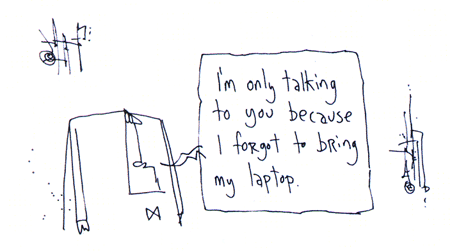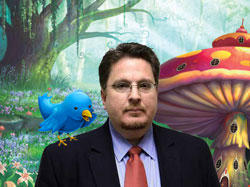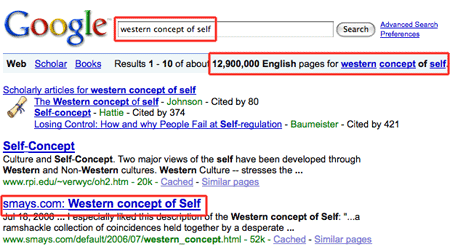Jerry Del Colliano offers 8 ideas for life after radio. Number 5 is particularly relevant for our company, which has half a dozen news websites:
It’s not news websites — that’s no business model. It will be blogs — special information on something that attracts a valued audience. But instead of monetizing it by selling ads (something I think has peaked even when the recession ends), sell a subscription. That’s right, I am nuts. I believe people will pay a reasonable fee for that which they crave — remember I said crave not like. In the past, if you are an expert on gardening, you would have done a radio show, TV or newspaper column. Now, you’ll do a blog. And if it has passionate followers and you price it right, you’ll make money and build revenue with your audience. Keep in mind I’m projecting this trend — it’s coming because it has to come. The Internet is a delivery system not the content.”
I should point out that we do not make any money from our websites. We are still very much in the radio network business (on the news side of our company). We sell 30 second commercials on affiliated radio stations. We have a few blogs and some Twitter accounts but –with a couple of exceptions– it’s more dabble than business. Exciting days ahead.
PS: My friend Jeff points us to a job opening at Chicago Public Radio. Under Experience/Skill Required:
Our ideal candidate will have five plus of relevant experience in radio or TV programming, broadcast media marketing or online community management. Strong knowledge of online communities, blogs, user generated content is required. Demonstrated team building and leadership skills. Clear written, verbal communication skills, with solid group presentation skills. The ability to merge organizational mission vision with strong creativity and tactical execution. Strong project management skills with an acute attention to detail. Should have a working knowledge of content management systems (CMS).”


 I’m one of a few hundred (but growing fast) “followers” of
I’m one of a few hundred (but growing fast) “followers” of 